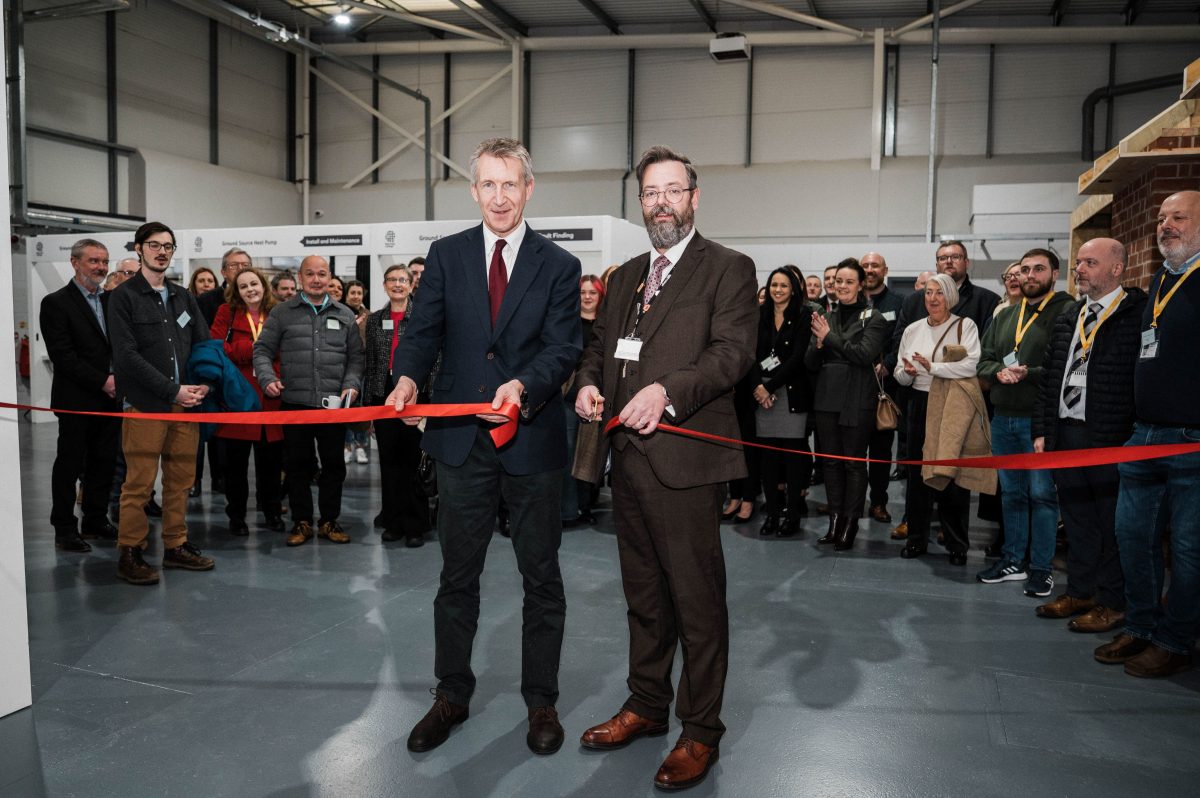Innovation explosion needed to meet net zero by 2050

The Government should introduce radical policies, including a new National Energy Laboratory and tax breaks for direct air capture and heat pump adoption, to accelerate innovation around net zero, a report from the thinktank Onward (@ukonward) will say today. It reveals that while the UK has decarbonised faster than any other G20 country since 1990, it increasingly trails behind other countries in the development of technologies likely to be critical to decarbonisation in the next thirty years.
The report, Green Shoots, analyses existing levels of innovation in carbon-intensive industries, as well as the stage of development of the technologies that may help them to decarbonise. The findings suggest that the Government should go much further to incentivise the development of key low carbon technologies and to support the diffusion of innovations across the economy:
-
The R&D intensity (R&D spending as a share of turnover) of two of the UK’s most carbon intensive industries – Land Transport and Construction – is just 0.01% and 0.09% respectively. This compares to 1.04% in the chemicals industry and 2.68% in the pharmaceuticals industry. The three carbon-intensive industries with the lowest R&D intensity – Transport, Construction and Agriculture – have decarbonised less than any other since 2010, apart from aviation.
-
Total capital investment in Low Carbon and Renewable Energy Economy sectors (as defined by the ONS) totalled £44 billion between 2014 and 2019, equivalent to around £7.3 billion a year. This represents just 14% of the £50 billion investment estimated to be needed each year to meet the trajectory set by the Climate Change Committee’s Sixth Carbon Budget. Nearly half of capital investment since 2014 (£19.1 billion) has been directed towards offshore and onshore wind.
-
The UK underperforms in climate-related patenting compared to its competitors. Between 2012 and 2016 (the latest five year period available) Germany and China filed 246% and 114% more patents in environmentally-related technologies, respectively, than the UK. China has increased their level of environmentally related patents by 82% over the period and now manufactures 73% of the global supply of electric vehicle batteries, 80% of solar panels and more than half of newly installed wind power capacity.
-
To achieve official targets – such as the adoption of 600,000 heat pumps by 2028 and all new car sales to be electric or hybrid by 2030 – there needs to be a step change in levels of production and demand. On current trajectories, heat pump installations will not meet the 600,000 target until 2046, and nationwide rollout to 27 million homes will not be reached until 2187 – a century and a half too late. There are currently only 1,200 plumbers capable of installing heat pumps in the whole of the UK.
In the run-up to the UK’s co-Presidency of COP26 in Glasgow in November, Onward urges the Government to adopt a number of radical policies to kickstart an “explosion” in net zero innovation and diffusion to propel the UK towards net zero by 2050 and to position the UK as an industrial leader in green technology. The authors recommend that ministers:
-
Set a “gold standard” for carbon offsets, by creating a new Carbon Accounting Regulator to oversee the monitoring, reporting and verification of greenhouse gas emissions, reductions and removals across the economy.
-
Rebalance carbon prices to reflect emissions, by increasing VAT on carbon-intensive products, and reducing it on low-carbon products. This would incentivise consumers and businesses to use more sustainable products and services, driving innovation in these sectors in the process.
-
Establish a National Energy Laboratory to conduct high-risk net zero research to overcome energy system challenges. This should be modelled on the National Energy Laboratories in the US and the Helmholtz Association Research Centres in Germany.
-
Introduce subsidies for Carbon Capture and Storage (CCUS) and Carbon Removal technologies, by introducing new Contracts for Difference to CCUS alongside Hydrogen, and introducing a Carbon Credit Tax Relief (CCTR) for Direct Air Capture credits.
-
Make heat pumps much more affordable, by making a proportion of the cost tax deductible; re-introducing a boiler scrappage scheme to allow people to trade in their old boiler, and introducing community finance schemes to help neighbourhoods adopt heat networks.
Ted Christie-Miller, report co-author, said:
“Net zero means shifting, at record pace, from a heavily fossil-fuel dependent economy to one based on low-carbon sources within the space of a generation. The time available is too brief, and the risks from failure are too great, for us to just wait and see if the technologies needed are going to be ready in time.
“The Government needs to consciously create the incentives and build the institutions necessary to create an explosion in the R&D, commercialisation and diffusion of key net zero technologies. If we don’t act fast, we will pay the price in higher emissions, lower competitiveness, greater societal disruption and higher costs for consumers and taxpayers.”
Dame Caroline Spelman, Co-chair of the Getting to Zero commission, said:
“Industries and Regions are moving at a wide range of speeds towards net zero; the critical differentiator to a more sustainable economy will be a clear focus on accelerating innovation in net zero solutions.”
Rt Hon Caroline Flint, Co-chair of the Getting to Zero commission, said:
“There is no shortage of green shoots but even the best ideas need investment, mass deployment and a supportive regulatory framework to grow. The marketplace alone won’t deliver. This latest report from Onward sets out what the Government can do to step up the pace and drive net zero innovation forward.”











Responses